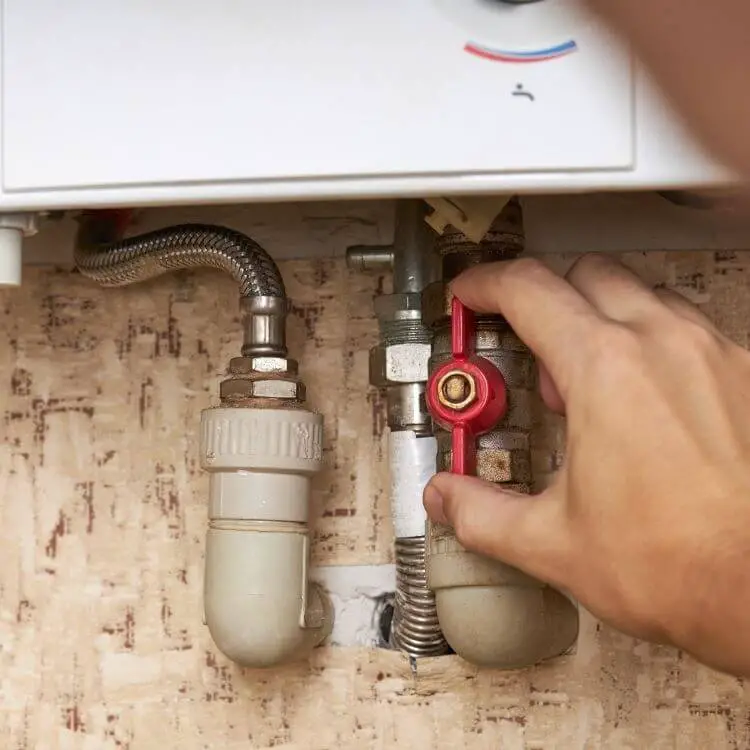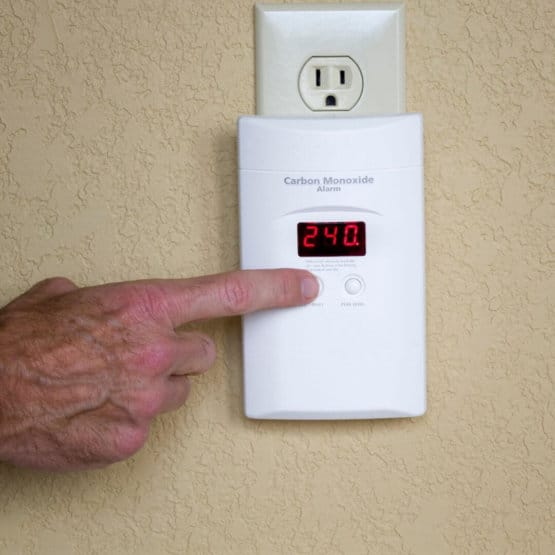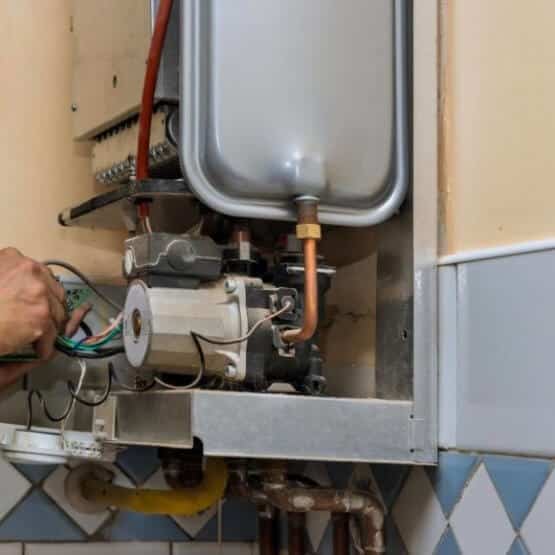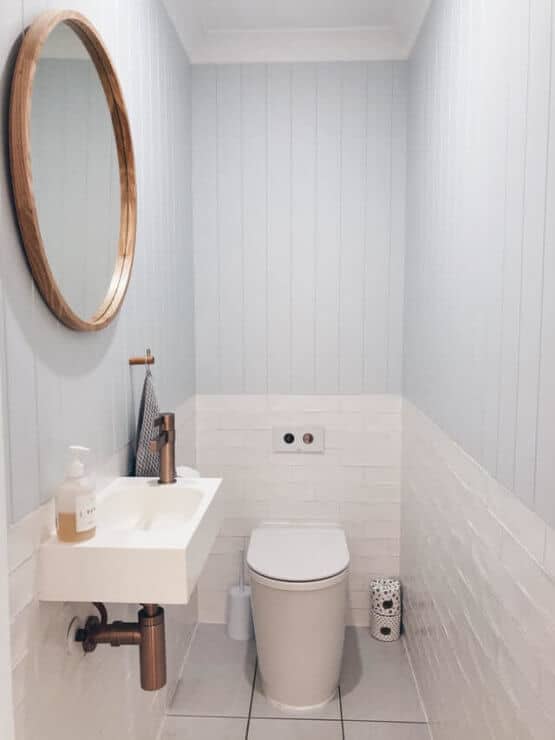Even though a tankless water heater may seem like they are not hazardous to people, there are some risks linked with their use. Let’s talk about some of the dangers of tankless water heaters, whether you’re hiring a professional to install them or intend to do it yourself.
Because most tankless systems are powered by natural gas, they face the same risks as any other gas-driven system: carbon monoxide leakage. In this way, though, a tankless water heater is similar to a gas-powered storage-tank water heater. Therefore, you shouldn’t have any difficulties with your water heater as long as you plan annual maintenance.
Dangers of Tankless Water Heaters
It is very safe to use a gas tankless water heater. The most common dangers of tankless water heaters include natural or propane gas leakage and carbon monoxide poisoning caused by faulty installation. Many safety features are built into tankless water heaters, and if a problem is detected, the unit will be turned off.
Are tankless water heaters safer?

Tankless water heaters are often safer than storage tank water heaters.
A tankless water heater is a very secure piece of equipment, except for the carbon monoxide problem. A tankless system poses no risk of bursting or exploding since there is no tank to overheat or a significant pressure rise.
A tankless heater is also a safer gadget to have with children present. However, tank systems can get rather hot on the outside, and they frequently feature cause fires. None of these problems exist with tankless water heaters, and they don’t utilize pilot lights. Overheating sensors are found in many of the highest-quality water heaters, and they instantly shut down the heating component when it gets too hot.
What are the disadvantages of a tankless water heater?

1. Carbon monoxide gas poisoning
Tankless gas water heaters emit carbon monoxide gas as part of the combustion process . This is very normal. How your tankless water heater is vented depends on whether it is an indoor or outdoor model.
Carbon monoxide poisoning might result when an interior tankless water heater does not vent properly. Garages, cellars, closets, and utility rooms are all frequent locations for indoor models. Unfortunately, many people are unaware that they are breathing carbon monoxide gas daily. If you breathe in a lot of carbon monoxide, it can kill you.
2. Can tankless water heater explode?
Yes it can!
If there is leakage of fuel around the main valve or gas piping, gas tankless water heaters can create a catastrophic explosion. Likewise, a spark from whatever nearby source could be enough to produce an explosion when a gas tankless water heater starts to leak [3].
Tankless water heaters contain safety features that shut down the unit if a problem is identified. Any inside spark could cause an explosion if gas leakage occurs before reaching the tankless water heater. Natural gas is odorless by nature. If this happens, your tankless water heater will beep and display an error code. This is why, in order to generate a “rotten egg” stench, gas suppliers began adding a gas called mercaptan to the gas supply [4].
- System Overload
Each tankless water heater has a mass flow capacity that will give you an idea of how much hot water may be consumed simultaneously. In case you exceed that limit, you risk overloading the system and causing problems. Unfortunately, many homeowners are unaware that tankless water heaters have limitations regarding simultaneous hot water usage.
If your water heater is overwhelmed, you may notice that some users have hot water while others do not. A system overload can cause the heater to shut down completely in some situations.
Understanding your heater’s capacity and also how many various appliances can utilize it at the same time is the easiest approach to avoid a system overload. However, if you’re having trouble regularly, you should get expert help. To make up for the shortfall, you may need to upgrade your existing heater or perhaps purchase a second heater.
- Cold Water Sandwich Effect
You may not be acquainted with the expression “cold water sandwich,” but if you live in a house where back-to-back showering is common, you will have experienced it.
When one user is done bathing and the next person enters straight after, it’s known as a cold water sandwich. The water begins boiling but quickly cools for a few seconds to a few minutes before returning to its original temperature.
This occurs when the water is no longer heated when the shower is turned off, and there is still some hot water in the pipes. The hot water comes out first, followed by the chilly water. The tankless water heater will work to bring the temperature of the water back to normal, so it shouldn’t remain chilly for long.
This impact isn’t so much a flaw in your heater as it is a feature. While tankless heaters are recognized for their short heat periods, the fact that hot water cannot be stored means the system cannot guarantee hot water immediately after being turned on and off. However, if the freezing spells in your shower last longer than a minute or two, you may be dealing with something more serious, and it’s best to get professional help.
- Sediment or Mineral Buildup
The accumulation of minerals or silt in the water heater or pipes could cause them to become partially or completely clogged. Iron pipes and parts can rust, causing iron silt to build up in the system. Meanwhile, elements such as calcium and magnesium may cause scale buildup in houses with hard water.
These minerals and silt can become trapped in place over time, resulting in a progressive accumulation that narrows the water’s opening. This can change the water’s pressure and temperature, making it potentially dangerous.
If you’re having issues with buildup, you’ll need to have your system flushed by a professional. Do this regularly as part of your annual maintenance to avoid more serious mineral or sediment accumulation problems.
- Ignition or Flame Failure
If the flame does not hold or ignite, it is most likely due to a malfunctioning electrical or gas line. The heater will be rendered incapable of heating the water in either case. First, determine whether your propane tank is running low or if the gas supply is cut off owing to a late bill.
If the gas supply is working properly, check to see if the water and gas check valves are completely open and if they aren’t, open them. If this doesn’t work, consider calling in a professional trained to deal safely with propane appliances. The problem might be anything from a faulty regulator to a defective gas line, posing a risk to your home.
Handling hot water devices can be risky. Therefore if you’re not sure how to repair or maintain your tankless water heater, call a professional right once. The Water Heater Company’s specialists can securely manage any problems you’re having and provide the best tankless water heater services for your needs.
How to deal with the Dangers of a Tankless Water Heater

- Tankless Water Heaters Should Be Installed Outside
The best way to install a tankless water heater is to put it outside. Tankless water heaters for the outdoors are built to endure the elements. It even has freeze protection built-in to keep the tankless water heater safe in temperatures as low as -30 degrees Fahrenheit. Ensure your indoor model is properly vented if you can’t install the tankless water heater outside.
- Properly Vent a Tankless Water Heater
Tankless water heaters that are used indoors must be vented to the outside. If you properly vent your water heater, the gasses will safely spread outside rather than pollute your home. Ensure that nothing is blocking the water heater’s vents. Carbon monoxide poisoning can be avoided by using proper ventilation. It also reduces the risk of your water heater being damaged.
This article will talk about how to vent tankless water heaters. Is it necessary to vent tankless water heaters? In short, tankless water heaters with an outside stainless steel vent are installed indoors. A concentric vent, which encases both the inlet and outlet vents in one encasement, is superior. This venting is beneficial because it is contained within the duct when a leak occurs.
Because a tankless water heater’s output is acidic, it can harm nearby vents and chimneys. Therefore, the unique venting requirement is a precautionary step to avoid the acidic output from causing damage to other vents and contaminating the inside air with potentially fatal carbon monoxide gas.
- Install a carbon monoxide alarm
In case there is a propane water heater in your home, you should place a carbon monoxide alarm in your home. If carbon monoxide gets into your home, the detector will set off an alarm. If you buy a battery-operated detector, regularly replace the battery.
- Regularly carry out water heater maintenance.
Poor tankless water heater maintenance is a big reason most of them break down and put consumers at risk. Unfortunately, many consumers don’t see why they should have their tankless water heaters maintained.
Some people believe that tankless water heaters are maintenance-free. However, if you want them to work properly, you should clean them once per year. Even a tankless water heater needs to be flushed every now and then to reduce silt accumulation on the burners. To learn about all of the maintenance procedures that must be followed, consult the user manual for your water heater.
- Install and maintain your tankless water heater with the help of a plumber.
If you haven’t worked with heating systems before, you shouldn’t try to install or repair one on your own. Installing a water heater without prior experience might lead to many issues. It’s always good to hire a professional right away.
For example, an untrained person could adjust the thermostat incorrectly, vent the water heater incorrectly, or fail to tighten a gas line, resulting in gas leaks. Allowing a competent plumber to install the water heater will help you prevent these and other problems. In addition, a plumber can assist you in determining the size of the tankless water heater you require.
Is it okay to turn off tankless water heater?
If you find an issue with your tankless water heater after using it, you must take precautions rather than attempting to repair it yourself. For example, if you notice a gas leak, turn off the heater, cut off the propane to the tankless water heater, vacate the house as soon as possible (if necessary), and call an emergency plumber or the local gas company.
Bottom Line: Is a Tankless Water Heater Worth It?
Compared to typical tank-style water heaters, tankless water heaters have various advantages. For example, they conserve energy (and thus money), give endless hot water, are small and compact, never leak, and do not contribute to hazardous metals in your water. The best part is that they last significantly longer than traditional tank-style water heaters.
The most recent models of heaters are tankless water heaters. These systems are often considered the most popular tank-type systems because they offer several benefits. However, there is concern of some of the dangers of the tankless water heaters.
The biggest concern is that several modes use natural gas, which can be exceedingly deadly if even a small leak occurs.
There have been dozens of examples documented in the last few years when people have died due to carbon monoxide poisoning caused by leaks from tankless water heater installations.
According to certain research, if sufficient ventilation is not given during the installation and use of these appliances, it could result in an explosion.
Therefore, after going through all of the points and facts about the dangers of tankless water heaters, we can safely conclude that tankless water heaters are far safer and more reliable than traditional systems.
These systems offer a variety of benefits, such as increased durability, improved performance, and energy-saving capabilities, which have made them quite popular among today’s consumers.

Michael Davis is a heating & plumbing expert who currently works as independent contractor in SC. He also writes for Plumbertip.
For almost 10 years he worked on various plumbing tasks across South Carolina.


